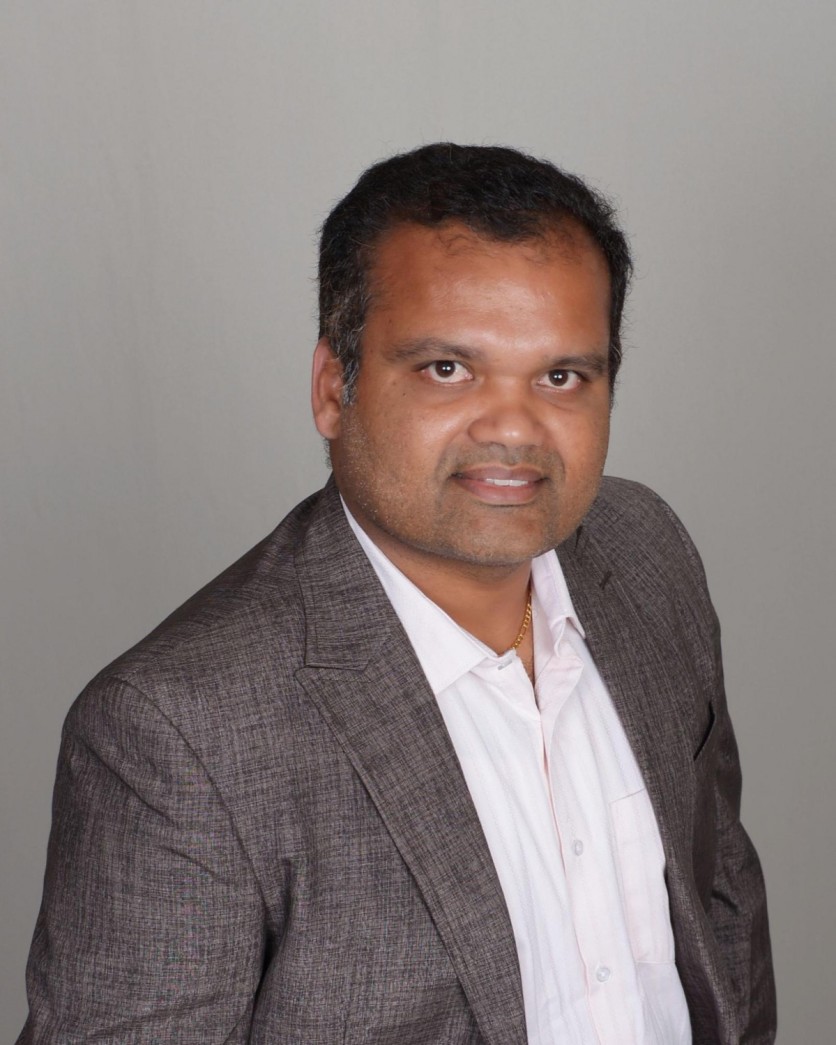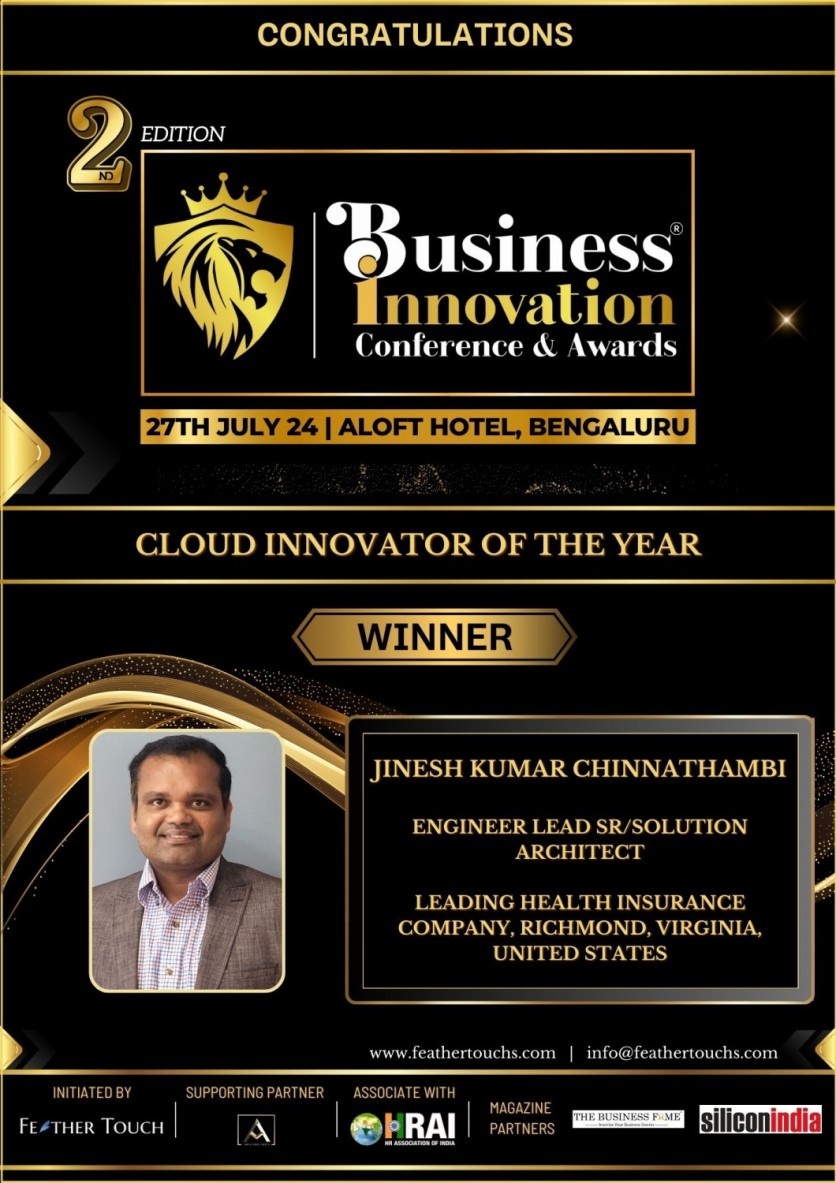
"Your cancer came back."
That's one of the most devastating statements a survivor can receive after the grueling journey of treatments, loneliness, and uncertainty that come with a cancer diagnosis. Sadly, the threat of a recurrence is a common worry even for people declared cancer-free. The uncertainty is crippling: will the cancer come back? If so, when? How can we be better prepared when it does?
A statement by the National Cancer Institute suggests these fears are valid: "For cancers that return, most do so within the first five years after treatment. But there is a chance that cancer will come back later. For this reason, doctors cannot say for sure that you are cured. The most they can say is that there are no signs of cancer at this time."
Where others see uncertainty, Jinesh Kumar Chinnathambi sees a potential solution in data. A data science expert with over 20 years of experience in Healthcare IT, Jinesh leverages data analytics, machine learning, and artificial intelligence to predict cancer recurrence with unprecedented accuracy to transform fear into actionable insights, empowering patients with knowledge to face the future.
Confronting Economic Implications of Cancer Recurrence
Jinesh is particularly interested in the cost implications of cancer recurrence for both families and the economy at large. In his recent publication, "Effective Cancer Recurrence Prediction using Healthcare Data Analytics with Machine Learning and Artificial Intelligence" (International Journal of Science and Research, August 2024), Jinesh explores how prediction can affect costs and the role advanced analytics and AI can play.
"Currently, limitations such as late diagnosis or misdiagnosis often result in suboptimal patient outcomes and increased healthcare costs, emphasizing a crucial requirement for an efficient prediction system in the initial stage of cancer."
According to the CDC, "In 2019, the national patient economic burden associated with cancer care was estimated to be $21.09 billion. This estimate includes patient out-of-pocket costs of $16.22 billion and patient time costs of $4.87 billion."
A recent Health Services Research study draws a distinction, noting that the average total annual costs are five to nine times higher for recurrent patients compared to first-time cancer patients.
Turning Data into Personalized Insights
Jinesh has always been passionate about using data to make a difference in people's lives. From pursuing a bachelor's degree in computer science engineering to the various IT roles he has held in the healthcare industry, his focus has always been decoding major issues and simplifying them for the average person.
Further specialization through certifications offered by the AHIP (America's Health Insurance Plan) paved the way for his current role at a leading health insurance company, where he works as an Engineer Lead Sr (Solution Architect). His expertise includes data analytics, artificial intelligence, cloud migration, and data warehousing—all critical components in accurate cancer recurrence prediction.
"Implementing AI for cancer prediction enables personalized medicine, ensuring that each patient's unique genetic makeup and lifestyle are considered in determining treatment plans," he notes in the publication. His current focus is on using Machine Learning (ML) and Deep Learning (DL) models to identify potential risks and care gaps.
"Machine learning models can analyze extensive and diverse data, uncover patterns and trends, and predict future care gaps," he asserts. Jinesh's work involves developing sophisticated machine-learning algorithms that can process this complex data and generate accurate predictions. These algorithms learn from historical patient data, identifying subtle correlations and risk factors that humans might miss. As more data is fed into the system, the predictions become increasingly accurate and personalized.
This benefits both patients and care providers. By providing more accurate recurrence predictions, healthcare providers can successfully tailor treatment plans and follow-up schedules to each patient's unique risk profile. Patients are empowered to make more informed decisions about their care and lifestyle choices, so it's a win-win for everyone.
Exploring the Potential of Data Analytics in the Broader Healthcare Model
Jinesh's work goes beyond cancer care. In another recent publication, "Leveraging Data Analytics with Artificial Intelligence to Detect and Close Health Care Gaps" (International Journal of Science and Research, July 2024), Jinesh explores how these same technologies can be applied more broadly to improve overall healthcare delivery. As he explains in the paper, cancer recurrence prediction is not an isolated problem; the same challenge is felt across the healthcare ecosystem, especially in areas with health professional shortages.
"Integrating data analytics and AI can help health organizations with risk stratification, personalized care, preventive healthcare, and optimal resource allocation. The potential of these technologies extends to reshaping care pathways, enhancing patient outcomes, and improving healthcare delivery standards," he explains.
Certifications, Industry Awards, and Future Plans

Over the course of his career, Jinesh has received many awards and accolades for his work in the health IT space. He holds four AWS certifications, including AWS Certified DevOps Professional and AWS Certified Solutions Architect Associate, making him a unique asset in an organization of over 100,000 employees.
Across his different roles, Jinesh's contributions have been recognized with numerous "A" awards and "Exceeds Expectations" ratings from his employer. Earlier this year, he received a Global Recognition Award for his notable achievements in the healthcare and information technology industries. Most recently, Jinesh won the Cloud Innovator of the Year Award at the Business Innovation Awards 2024 in the Health Care/Information Technology category, which recognizes outstanding achievements in cloud innovation.
Jinesh has ambitious goals. In the short term, he hopes to continue developing and implementing advanced solutions that improve patient care through the use of data analytics, cloud technology, and AI. He dreams of contributing to a world where AI-driven predictive models are integral to cancer care, from initial diagnosis through treatment and long-term follow-up.
As Jinesh explains, the potential impact is enormous. "Early diagnosis and accurate recurrence prediction can reduce treatment costs and improve outcomes. One study estimated the national cost-savings in the United States from early diagnosis to be $26 billion per year."
His work can potentially change lives. Every accurate prediction made and every recurrence prevented represents a family spared the devastation of a cancer comeback. That's what drives Jinesh.
His long-term aspirations are equally ambitious. He sees himself taking on roles in research and development so he can contribute to the understanding of new healthcare technologies in academic settings. He's also considering entrepreneurship, with plans to launch innovative healthcare IT products and services that address gaps in the current system.
Jinesh Kumar Chinnathambi is on a path to reshaping cancer care, using data-driven solutions to turn fear into actionable insights. His work goes beyond just predicting cancer recurrence; it's about giving patients and their families a clearer path forward. With each advancement in AI and machine learning, Jinesh is bringing forward a future where cancer is not just treated but anticipated. In this future, instead of hearing "Your cancer came back," patients can hear, "We're ready for it, and we're winning."
ⓒ 2025 TECHTIMES.com All rights reserved. Do not reproduce without permission.





